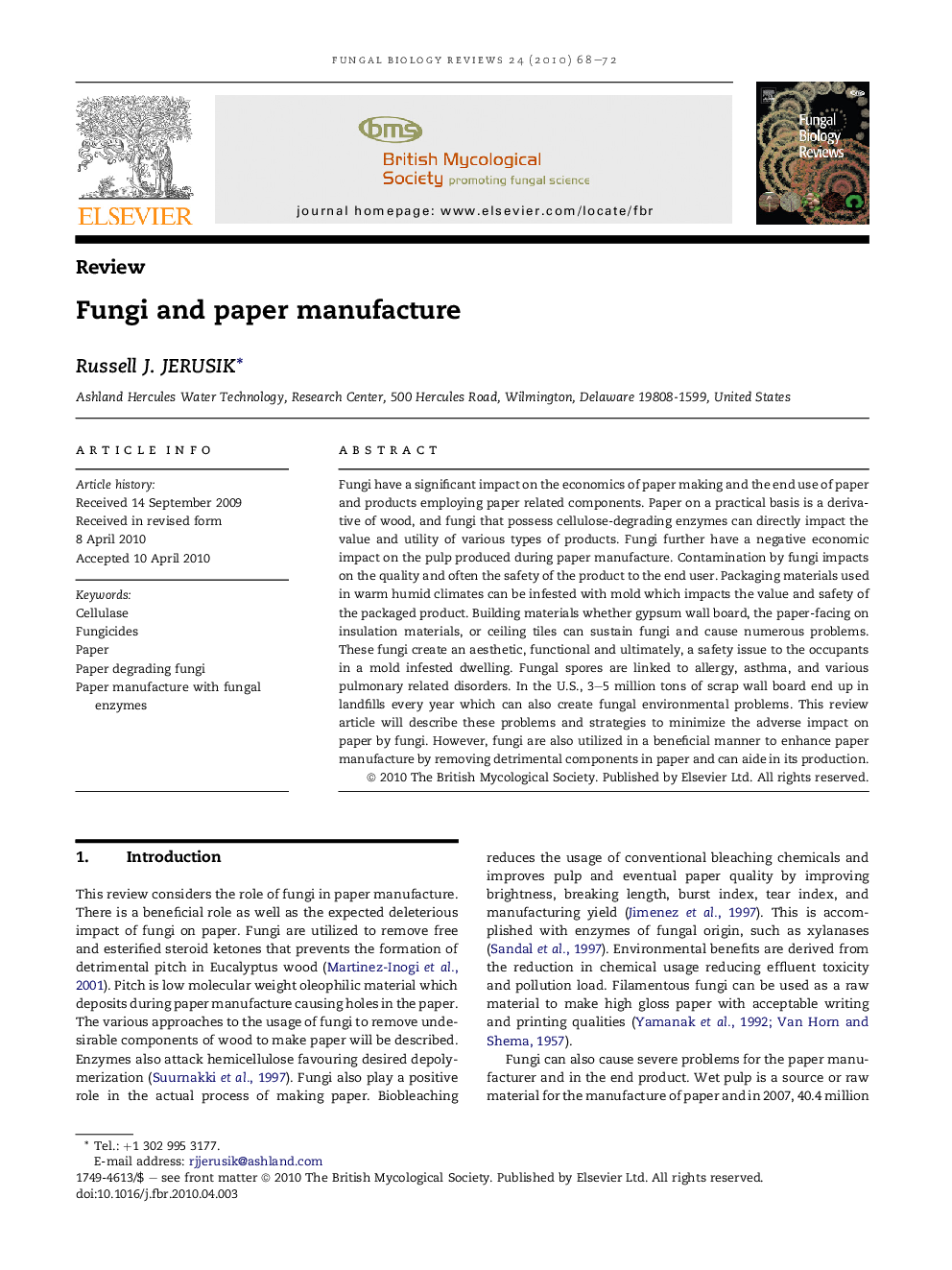| Article ID | Journal | Published Year | Pages | File Type |
|---|---|---|---|---|
| 2180581 | Fungal Biology Reviews | 2010 | 5 Pages |
Fungi have a significant impact on the economics of paper making and the end use of paper and products employing paper related components. Paper on a practical basis is a derivative of wood, and fungi that possess cellulose-degrading enzymes can directly impact the value and utility of various types of products. Fungi further have a negative economic impact on the pulp produced during paper manufacture. Contamination by fungi impacts on the quality and often the safety of the product to the end user. Packaging materials used in warm humid climates can be infested with mold which impacts the value and safety of the packaged product. Building materials whether gypsum wall board, the paper-facing on insulation materials, or ceiling tiles can sustain fungi and cause numerous problems. These fungi create an aesthetic, functional and ultimately, a safety issue to the occupants in a mold infested dwelling. Fungal spores are linked to allergy, asthma, and various pulmonary related disorders. In the U.S., 3–5 million tons of scrap wall board end up in landfills every year which can also create fungal environmental problems. This review article will describe these problems and strategies to minimize the adverse impact on paper by fungi. However, fungi are also utilized in a beneficial manner to enhance paper manufacture by removing detrimental components in paper and can aide in its production.
